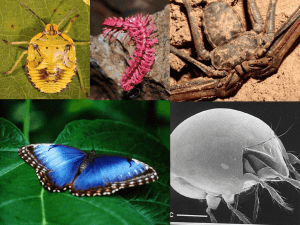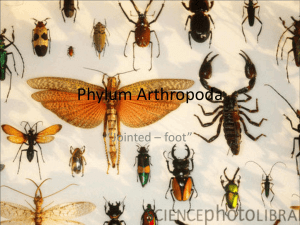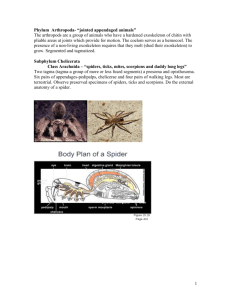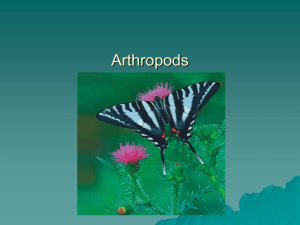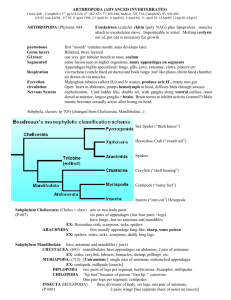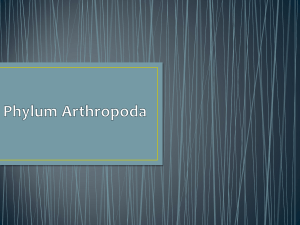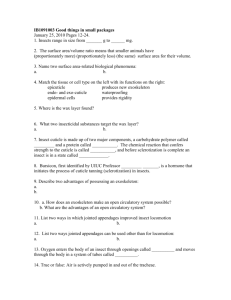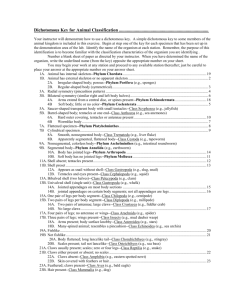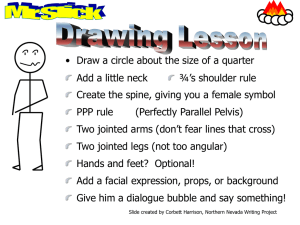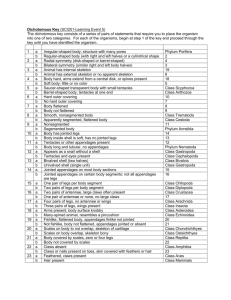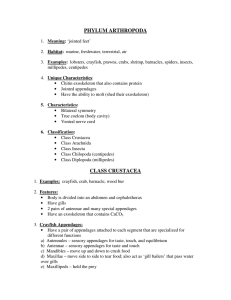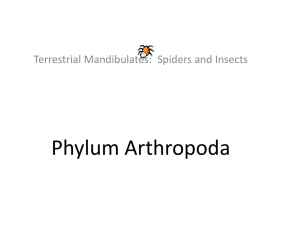File
advertisement
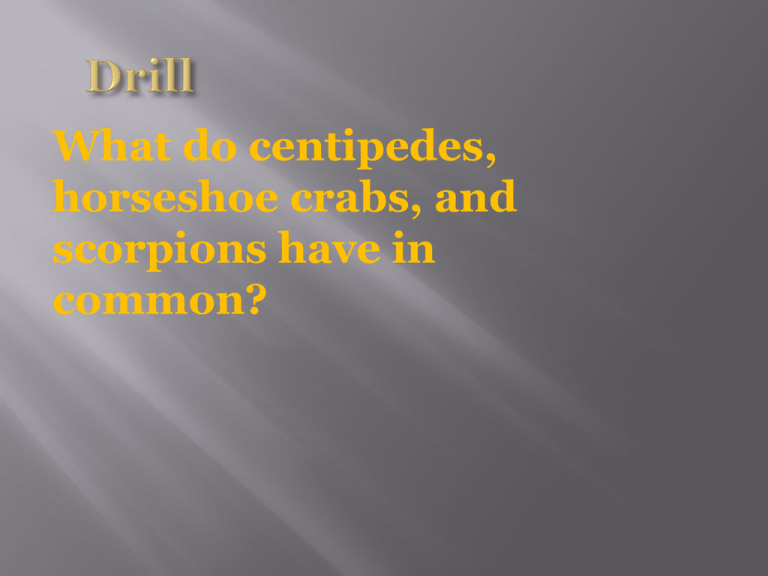
What do centipedes, horseshoe crabs, and scorpions have in common? By: Justin Lloyd Brad DeBoy Alec Hawkins Tyler Koslofsky Appendage- Any complex part or organ extended from the body. ArthropodSegmented animal with jointed appendages and a exoskeleton CheliceratesIncludes spiders, scorpions , mites, ticks, sea spiders, and horseshoe crabs. Chitin- clitellum of each worm secretes a tube made of mucus and tough carbohydrates Crustaceans- An Arthropod with mandibles and branches appendages. Exoskeleton- The hard, external cover of some invertebrates that provides protection and support. Molting- The process of shedding an exoskeleton or any other outer layer of an animal. Spiracles- An external opening of a trachea in an insect myriapod spider. UniramiansCentipedes, millipedes, and insect. 1. A hard outer body covering called an exoskeleton 2. Specialized mouth parts 3. Jointed legs 4. Compound eyes 5. Segmented body parts Arthropods have segmented bodies Body sections bear jointed extensions called appendages (ex: legs+ antennae) Have an exoskeleton that provides protection and support Made up of 3 sections secreted by the epidermis 1st layer is waxy and composed of a mixture of protein and lipids 2nd layer is comprised of protein and chitin and provides primary protection 3rd layer contains proteins and chitin Is flexible at the joints to allow movement Has a high level of cephalization meaning that it has many sensory organs and appendages in one region Have segmented antennae and compound eyes that have individual light receptors Sensory organs send nerve impulses to the brain that coordinates movement Have open circulatory systems Arthropods molt their exoskeleton to allow for growth. Crustaceans have an exoskeleton, two parted limbs, and nauplius larvae (their eggs). Examples: Crabs, Lobsters, Shrimp They have segmented bodies with jointed limbs. They have open circulatory system. They used to be predators, but are now mostly involved in mutualism, and scavenging. Examples: Horseshoe Crabs, scorpions, spiders, mites, harvestmen (Daddy Long Legs), ticks. They have exoskeletons, and jointed appendages. Legs are only one branch they are interterrestrial. They have antennae. Examples: Insects, centipedes, millipedes, and beetles. http://www.youtube.c om/watch?v=UFe3cZ LuhUs http://www.youtube.c om/watch?v=DX_rgH HWwv8 “Baby You’re an Arthropod” Tarantula Song
